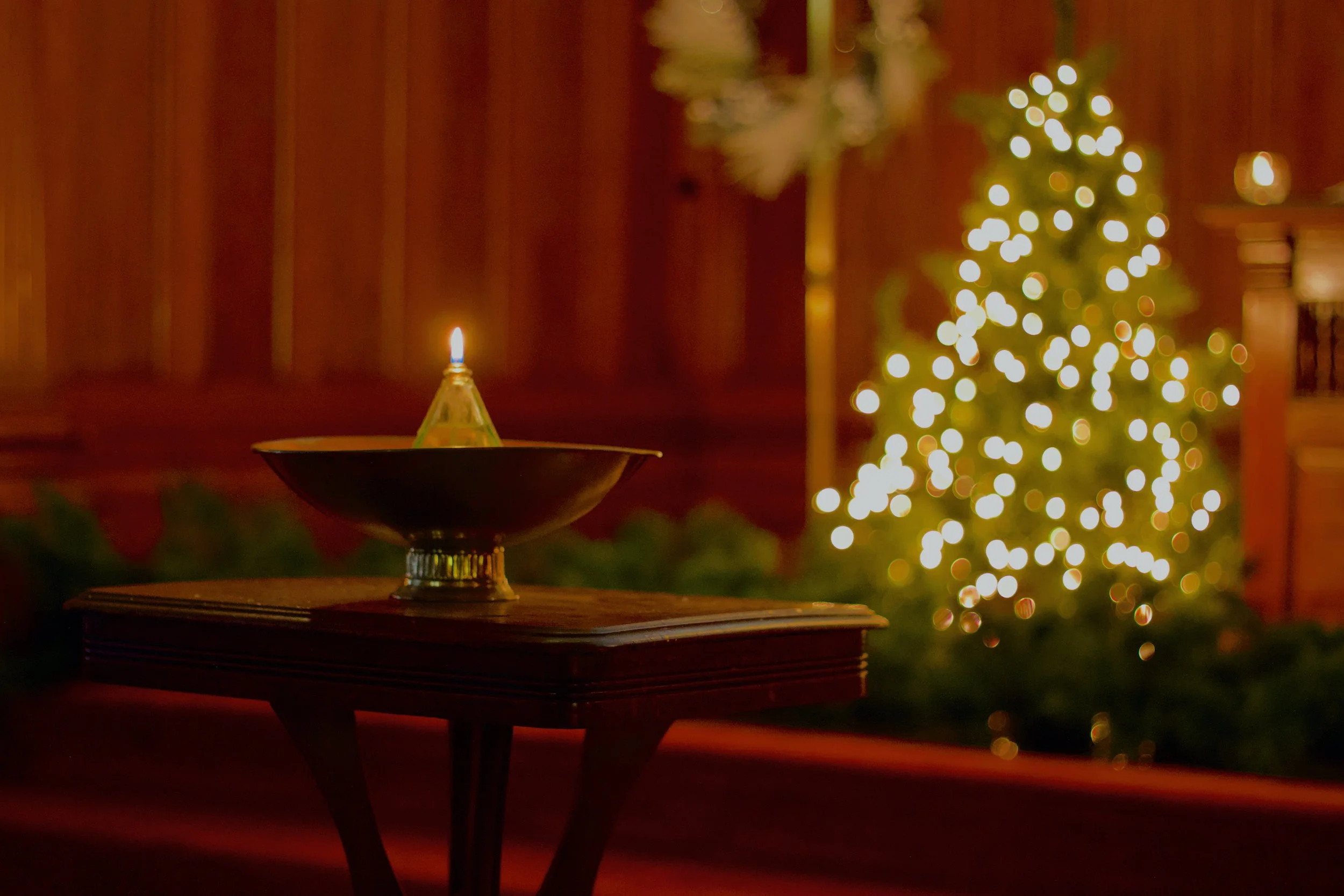Christmas Eve homily given by Rev. Frank Clarkson, December 24, 2021.
Several of you have told that lately you’re been feeling a greater range of emotions these days— more sadness or worry, but also times of peace and gladness. You say that life in these days is opening you up—to more sorrow and to more joy, and you’re trying to just be present to these feelings, and hold them as best as you can.
I’ve been experiencing this too. Worried in some moments, happy or peaceful in others. And isn’t it true, that as we expand our capacity for touching and holding sorrow, we also increase our ability to feel joy?
Isn’t this the opportunity that Christmas offers? Amidst the carols and cards proclaiming “Joy!,” Christmas also bring sadness and sorrow, and reminds us of what we’ve lost. That’s why I love the melancholy carols as much as the uplifting ones—because they invite us to touch those shadowy places, which, paradoxically, helps us to live into the light.
The writer Garry Wills says, “Christmas heightens our memory and yearnings, our wish to love and be loved. It stretches our human capacities.… Christmas is a dark and risky business: like falling in love, or beginning an adventure… like becoming flesh and dwelling among people.”
The good news is that we are capable of this stretching and growing. If anything, this pandemic has taught us how to be more flexible and more adaptable, right? Which is good for us.
We just sang some lines from “O Little Town of Bethlehem,” that are particularly resonating with me this year:
How silently, how silently the wonder is made known
When God imparts to human hearts the gift that is our own.
No ear may hear that coming, but in this worldly din,
When souls are truly humble, then the dear babe rests within.
The Nativity story is about dark and light, about hope and worry, about love and fear.
The angel says, “Fear not! I bring you good tidings of great joy.” But Mary and those shepherds must have been afraid. How could they not be? But they turned toward hope, and the promise of goodness and wholeness to come.
Jan Richardson admits she does’t know how the light comes. It’s a mystery, kind of like Christmas. How does the Spirit of Love come into our hearts? It helps if you let down your guard, and make some time for quiet. It helps if you ask for the Spirit to come, if you trust that it will come.
“I cannot tell you how the light comes,” Jan Richardson writes, “but that it does. That it will.” (Read the entire poem here.)
Here’s what I can tell you, my spiritual companions, on this Christmas Eve. You already have what you need, and it is within you.
How silently, how silently the wonder is made known
When God imparts to human hearts the gift that is our own.
The gift of Christmas, the mystery of the incarnation, is simple. It’s that God, the source of life and love, is with us. Is in us. You don’t need to do anything to earn that love. It is freely given, and has been with you all along. You just need to accept it. To see yourself as the home of the holy.
This is what the mystic Teresa of Avila was talking about, five hundred years ago, when she said “Christ has no body now on earth but yours.”
We have been given the gift of these bodies, these hearts and minds. We have been given the gift of these companions, and those who have gone before us; everyday saints and mystics who remind us what a miracle it is to be here. To be able to gather and hear the story, to sing our songs of joy and peace, to share the light with one another, to feel the Love moving in our midst.
And so, my friends, let us open ourselves as widely as we can, and invite the wholeness of Christmas into our hearts and into our lives. Let us receive the gift that is our own. Let us never forget that we are part of that light, and bearers of that Love.
Now and forever,
Amen.
